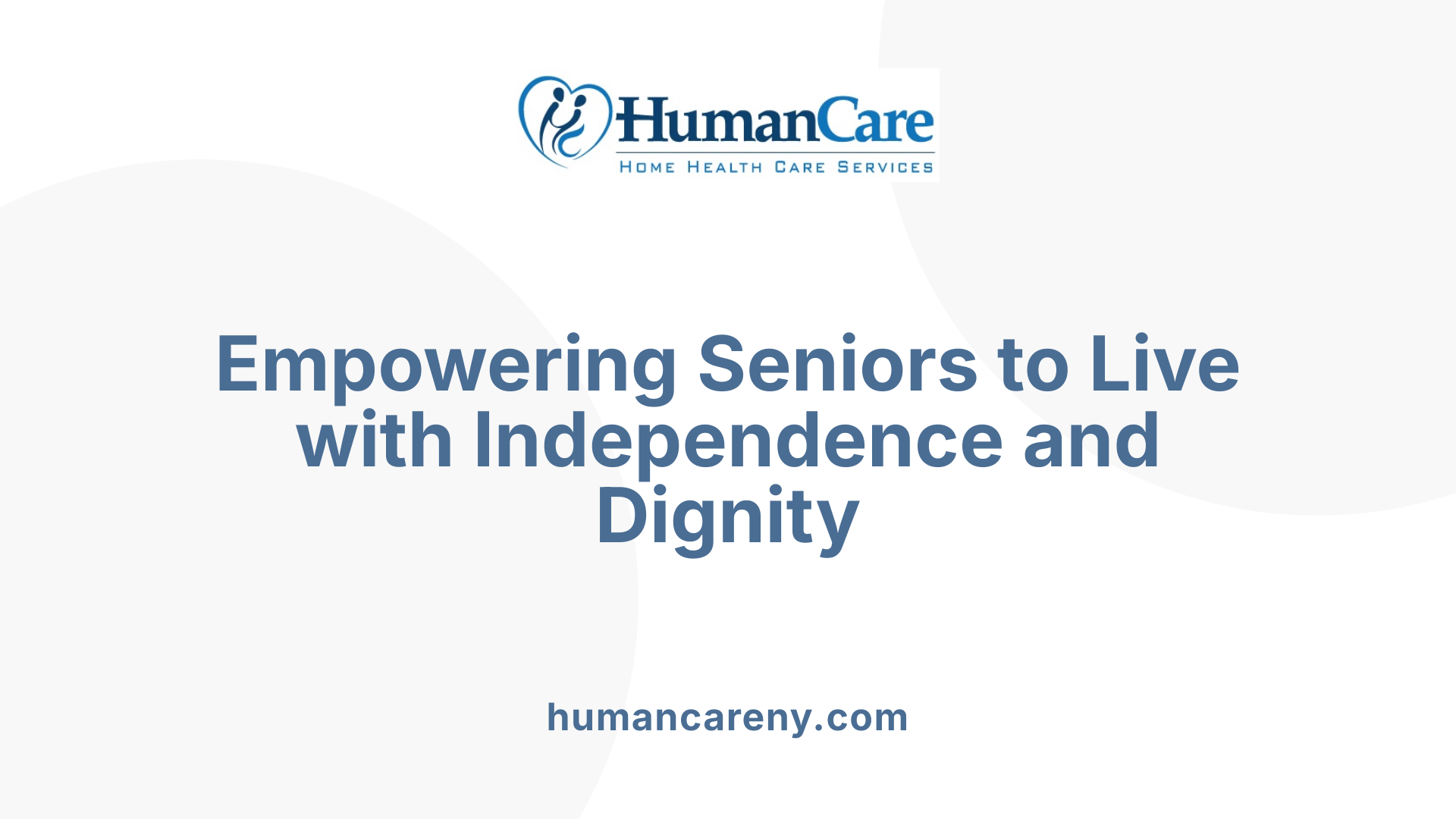The Critical Role of Homemaking Services in Senior Safety
As the global population ages, ensuring the safety and well-being of seniors living at home has become a pressing concern. Homemaking services emerge as a vital support system, offering not only practical assistance with daily tasks but also contributing to the emotional and physical health of elderly individuals. This article explores how these services serve as a cornerstone for safe, independent, and dignified aging at home.
Comprehensive Support for a Safe Living Environment

Assistance with household chores
Homemaker services play a vital role in maintaining a safe and comfortable home environment for elderly individuals. These services include essential household tasks such as cleaning, laundry, meal preparation, and errands. Regular cleaning activities like dusting, vacuuming, and mopping help eliminate dust, allergens, and bacteria, reducing the risk of infections and respiratory issues. Proper organization and decluttering by homemakers also minimize tripping hazards, creating a safer living space.
Meal planning and preparation ensure seniors access nutritious, balanced diets tailored to their specific dietary needs. These services not only promote better health but also prevent malnutrition. Assistance with grocery shopping and medication reminders supports overall health management, keeping seniors active and independent.
Home safety improvements
Homemaker services extend beyond chores to include safety enhancements within the home. This involves installing grab bars, handrails, and non-slip mats in bathrooms, kitchens, and stairways to prevent falls. Regular safety assessments help identify hazards like loose rugs, exposed cords, and poor lighting, which are then addressed promptly.
Home modifications such as widening doorways, adding ramps, and adjusting furniture height enhance mobility and reduce injury risks. Safety devices including smoke detectors, carbon monoxide alarms, and emergency response systems further protect seniors. Educating seniors and their families about medication management and emergency preparedness also contributes to a safer home environment.
Hazard reduction techniques
Reducing hazards is central to homemaking services. Professionals conduct thorough home assessments to identify and eliminate potential dangers, such as cluttered walkways or inadequate lighting. They ensure areas are well-lit, especially in pathways to prevent trips and falls.
Cleaning routines focus on disinfecting high-touch surfaces and removing mold or moisture buildup to support hygiene and health. Installing ergonomic furniture and assistive devices makes daily activities easier and safer for seniors with mobility challenges. Monthly maintenance checks and home safety modifications help sustain a hazard-free environment.
| Safety Measures | Details | Additional Benefits |
|---|---|---|
| Non-slip mats & grab bars | Installed in bathrooms and stairways | Prevent falls & injuries |
| Adequate lighting | Enhanced in hallways and entrances | Reduce accidents |
| Home modifications | Ramps and widened doorways | Improve mobility & independence |
| Safety devices | Smoke detectors and emergency systems | Immediate alert in emergencies |
| Safety education | Medication & emergency protocols | Empower seniors & families |
By combining thorough cleaning, safety modifications, and hazard reduction, homemaker services create a secure environment. They enable seniors to live with dignity, independence, and peace of mind, all while reducing the risk of accidents and health complications. These comprehensive measures support a safe, organized, and nurturing home where elderly individuals can thrive.
The Emotional and Social Benefits of Homemaking Support

How do homemaking services, such as companionship and emotional support, influence seniors’ mental health?
Homemaking services that include companionship and emotional support are vital for the mental well-being of elderly individuals. Engaging regularly with caring homemakers provides seniors with meaningful social interactions, which helps reduce feelings of loneliness, a common issue among older adults living alone.
These interactions foster a sense of connection and belonging, which are crucial for emotional health. When seniors feel supported and valued, their mood tends to improve, and their risk of depression decreases.
Having someone to talk to and share daily experiences offers emotional comfort and reassurance. This sense of safety and companionship helps alleviate anxiety and stress, contributing to better overall mental health.
In addition to providing emotional support, homemakers often stimulate cognitive function through conversations and social activities. Maintaining mental engagement is essential for cognitive resilience and can help slow the progression of cognitive decline.
Furthermore, these services help seniors feel more positive about their daily lives, encouraging a hopeful outlook and resilience in facing health challenges. Overall, companionship and emotional support from homemaking services are fundamental in promoting mental wellness, leading to a higher quality of life for older adults.
What is the impact of homemaking services on the quality of life and safety of elderly individuals?
Homemaking and home care services significantly enhance the quality of life for elderly individuals. They promote not only physical health but also mental and emotional well-being through personalized assistance and support.
These services help seniors maintain independence by aiding with daily activities such as bathing, dressing, meal preparation, and household chores. Such support allows seniors to stay in their familiar environments longer, delaying or avoiding institutional care.
Safety improvements are a primary aspect of homemaking services. Tasks like cleaning, organizing, and repairing help reduce hazards like clutter and spills, minimizing fall risks. Additionally, medication reminders and health monitoring contribute to early detection of health issues, preventing complications.
Homemakers also support emotional health by providing companionship and social engagement, which combat loneliness and depression. The overall result is a safer, more comfortable, and fulfilling living environment.
In summary, these services not only contribute to physical safety but also foster a sense of independence, dignity, and emotional stability, which collectively improve the everyday lives of seniors.
Additional Insights into Homemaking’s Role in Seniors’ Well-Being
| Aspect | Details | Impact on Seniors |
|---|---|---|
| Household Safety | Cleaning, decluttering, organizing | Reduces fall hazards, infections, and accidents |
| Personal Hygiene | Bathing, grooming assistance | Maintains dignity and prevents health issues |
| Nutrition | Meal planning and preparation | Promotes health and prevents malnutrition |
| Medication Reminder | Monitoring and prompting | Ensures adherence to treatment |
| Emotional Support | Companionship, conversation, empathy | Lowers loneliness, boosts mood |
Homemaking services serve as a comprehensive approach to elder care, encompassing physical safety, health maintenance, and emotional support. They empower seniors to maintain their independence and dignity while providing peace of mind for their families.
By addressing the holistic needs of elderly individuals, these services foster a safe, supportive, and engaging environment that enhances overall well-being and quality of life.
Supporting Aging with Dignity and Comfort

How do homemaking services support the independence and well-being of elderly individuals?
Homemaking services are essential in supporting seniors to live independently while maintaining their dignity. These services encompass a range of tasks including assistance with daily activities like personal hygiene, such as bathing, grooming, and toileting, which are crucial for health and dignity. They also include household chores like cleaning, laundry, and organizing, which help keep the living environment safe and clutter-free.
Furthermore, homemaker services provide emotional support and companionship, reducing feelings of loneliness and social isolation. This mental health support encourages better emotional well-being and enhances quality of life. Supporting nutrition is another vital aspect, with meal planning, preparation, and grocery shopping ensuring access to nutritious, balanced meals tailored to dietary needs.
Transportation services and medication reminders help seniors stay connected and adhere to health regimes, preventing health complications. These services are flexible and tailored to meet the evolving needs of each individual. By doing so, they enable seniors to age in place with dignity, independence, and a sense of security.
What are the specific roles of homemaking services like light housekeeping and personal care in promoting safety?
Homemaking services such as light housekeeping and personal care are fundamental in creating a safe environment for seniors. Regular light cleaning—dusting, vacuuming, mopping, and organizing—removes dust, allergens, and clutter that can cause allergic reactions or increase fall risk.
A tidy, clutter-free space minimizes hazards like tripping over objects or slipping on spills. Care tasks like helping with grooming, bathing, and toileting not only promote hygiene but also prevent skin infections and discomfort.
Support with mobility, medication reminders, and emergency contacts ensures early intervention if health issues arise. Sanitation of surfaces reduces bacteria and mold, promoting better overall physical health.
By maintaining cleanliness and assisting with personal hygiene, homemaking services significantly reduce the risk of falls, infections, and other accidents, ensuring that seniors can live safely, comfortably, and with dignity in their own homes.
| Service Type | Primary Function | How It Promotes Safety | Additional Notes |
|---|---|---|---|
| Light housekeeping | Cleaning, organizing, laundry, decluttering | Reduces tripping hazards, prevents infections | Keeps environment hygienic and safe |
| Personal care tasks | Bathing, grooming, toileting | Prevents skin issues, maintains hygiene | Supports dignity and comfort |
| Medication management | Reminders and health monitoring | Ensures medication adherence, early health detection | Prevents complications and emergencies |
| Mobility assistance | Support in moving safely around the house | Prevents falls, maintains mobility | Includes help with transfers and ambulation |
| Sanitation of surfaces | Cleaning kitchen, bathroom, and common areas | Reduces bacteria and mold, lowers infection risk | Promotes physical well-being |
Homemaker services play a vital role in fostering safer, healthier, and more comfortable living conditions for seniors, enabling them to retain independence and dignity.
Additional Aspects of Homemaking Support
- Meal services: Planning, shopping, cooking nutritious meals suitable for dietary restrictions.
- Errand assistance: Grocery shopping, prescription pickups, mailing, alleviating stress.
- Home management: Organization, decluttering, and basic maintenance.
- Emotional support: Companionship and reducing loneliness.
These comprehensive services improve quality of life, promote physical health, and support mental well-being, ensuring the elderly can age gracefully at home.
Empowering Seniors Through Safe and Supportive Home Environments
Homemaking services are essential in creating a safe, healthy, and comfortable living space for the elderly. By addressing physical safety, promoting independence, and providing emotional and social support, these services help seniors enjoy a higher quality of life while aging in place. Enhanced home safety measures, personalized care routines, and a clean living environment not only diminish the risk of accidents and health issues but also foster dignity and happiness among seniors. As families and communities recognize the importance of these services, investments in professional homemaking support will continue to be a cornerstone of effective elderly care, ensuring that aging individuals can thrive safely and comfortably in their own homes.
References
- The Benefits of Utilizing Homemaker Services
- Why Homemaking Services Are Crucial for Seniors
- Five Ways Homemaker Services Help Aging Seniors
- How Homemaking Services Can Enhance Daily Life for ...
- 5 Great Benefits of Homemaker Services for Seniors
- HOW HOMEMAKING SERVICES ENHANCE QUALITY OF ...
- The Impact of Light Housekeeping on Senior Independence



